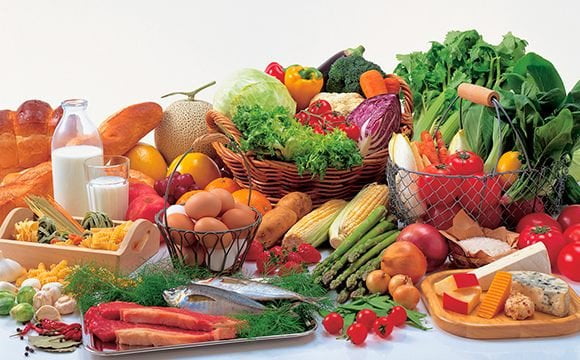Georgian Prime Minister Irakli Garibashvili criticized the often unjustifiably high food prices in the Georgian retail market and instructed the Ministry of Economy and Sustainable Development to urgently draft a bill aimed at reducing them. EastFruit specialists know that the bill, which is planned to be submitted to Parliament soon, will be based on the principles of the EU Directive 2019/633 on unfair commercial practices in relations between companies in the agricultural and food supply chain. It is planned to influence the work of importers and retailers in Georgia through this law.
Read also: Food prices keep growing in Georgia – the government is stepping in to find a solution
“The issue relates to the order I gave two weeks ago regarding food and fuel prices. There were several meetings on the matter. The ministers of economy, finance, and agriculture participated in them, and the leadership of the Competition Agency is fully involved, too. A lot of meetings were held both with importers, large chains, and owners of retailers. The picture is the following (I want to explain once again to our people, and society): in total, it turns out that the markup is 70%, 80%, in some cases it increases by 100%, and, of course, this is unacceptable. Therefore, we have now begun active work to regulate. We also listened to the explanations of the importers that there is no profit for them out of this 70%-80 %, because of rules, established by retailers, that is, large chains. These rules are the problem we will address. They have not been tested, and such rules do not apply in Europe. Meanwhile, this issue has been settled in the European Union, and in all Western countries.
Therefore, on my instructions, the Ministry of Economy will draft an appropriate bill regarding the European directive on fair trade. We will continue to work with importers, as well as with representatives of large chains. In addition, we will submit this bill to the Parliament. I hope that the Parliament has the political will and supports the adoption of the European directive and these regulations by us. Otherwise, it would be rude of us to carry out any artificial intervention. Therefore, we have found a way to transfer this practice, which Europe has already passed, to us, to our country. This will introduce fair rules. Importers will have margins, markups, and retailers will have their own set rules. This is the result of this brief two-week work.
Naturally, it is crucial to us that prices come down so that basic food items are not sold at unreasonably high margins. And it will affect our people. When we talk about inflation, the rate of annual inflation last month was 9.4%, of which 6.1% was accounted for by food prices. So, we can assume that as soon as these issues are resolved, and this can happen very soon, inflation will drop to the level we set – about 5% this year,” Irakli Garibashvili said at a government meeting on February 20.
Read also: Can a Georgian salary afford more fruits, nuts, and vegetables than it could in previous years?
The Minister of Economy and Sustainable Development of Georgia Levan Davitashvili explained that the draft law is aimed at developing a civilized food market in the country, where its participants will no longer need a high margin as a means of reinsurance.
“We have studied the best practice of the European Union, the directive of the EU on fair competition. This is directive No. 633 of 2019, based on which we have prepared the main principles of the bill to resolve issues and ensure fair competition. In particular, the terms of payment to suppliers, the “entry fee”, the conditions for marketing expenses, the transparency of information on stocks, the issue of the additional retro bonuses, return of products, etc. All this is in direct connection with the margin and process optimization. In accordance with the new regulations, each link of trading participants will be interested in the process being as efficient as possible, and there will be no need for increased margins, which today play a role of reinsurance. This will make it possible to reduce additional margins and supply products at the best price for consumers. The bill also provides for significant sanctions. The agency responsible for the implementation of the law will be the Competition Agency. And we think that as a result of these legislative changes, we will get a better food market,” the minister said.
Levan Davitashvili adds that besides the bill, the Revenue Service and the Competition Agency are working with importers and distributors to reduce prices for some goods, including essential products, and it bears fruit.
“The 10 most essential products are especially significant for us. These are cereals, vegetable oil, and other primary products, which are the most sensitive in terms of prices, and which the population is most concerned about. Therefore, we are counting on a positive trend in reducing prices for some food products even before the law enters into force, and then, as the Prime Minister said, this issue will be settled systematically in accordance with the best EU practice,” said Levan Davitashvili.
The use of the site materials is free if there is a direct and open for search engines hyperlink to a specific publication of the East-Fruit.com website.




